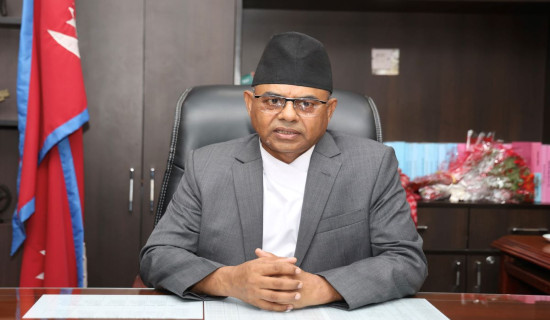- Thursday, 26 February 2026
Polls: Epitome Of Democracy
Dixya Poudel
India recently held its general elections which took place from 19th April to 1st June, 2024. 543 members of the Lok Sabha were elected in seven phases of election. And the results were shocking. While Bharatiya Janata Party (BJP) earned the highest number of seats (240), it still fell short of a majority in the Lok Sabha. It came as a shock as BJP was expected to win a landslide victory. In coalition with National Democratic Alliance (NDA), BJP leader Narendra Modi has been elected the Prime Minister for a third consecutive time (a feat only Jawaharlal Nehru had held). But Modi is unlikely to have an iron clad role in the governance like he did the previous times.
People in India had it in their hands to voice their opinions through their choice of political representatives. As such, citizens of the world’s largest democracy have spoken and they seem to want a change from the government policies. It shows that despite Modi’s widespread popularity, his party’s grip on Indian politics may be slightly waning. The opposition party Indian National Congress won 99 seats, quite a jump from the results of the previous elections. Modi might be at the helm of the governance once again but he will have to face formidable opponents. This could check his leadership even as the world looks up to him as a stalwart leader and charismatic statesman.
During his governance, India has indeed seen an unprecedented economic boom. But critics and even the opponents have decried the rising wealth inequality and surging unemployment rates. In fact, the Congress party made good because of these setbacks during Modi’s rule. As such, people aren’t blind followers. They are indeed cognizant of their rights and it especially applies to the poor, underprivileged and disadvantaged. Increasingly exploited and discriminated, they can turn against the same rulers to whom they once pledged fierce loyalties. BJP remains strong in India but some of its shine has dulled as Indian citizens seem to seek a change from current policies.
Democracy is the most people-oriented form of governance throughout the world. Originated in ancient Greece, it is also the most common form of governance today. The term democracy can be traced back to the Greek word ‘demokratia’ coined in 5th century BCE to denote political system of Greek city-states. Then in 19th century when Abraham Lincoln presided as the president of United States of America, he claimed that “Government of the people, by the people, for the people, shall not perish from the earth.” He clearly championed the people’s right to vote for their representatives as a result of which US remains an exemplary democratic nation.
However, the 2024 US presidential election which is a few months away will see a controversial figure Donald Trump contest as a Republican candidate. His eligibility to contest despite conviction could be one of the few drawbacks of US constitution which shows that even democracy isn’t free of snags and can be exploited by political parties. Election season in India has ended with a shock. Elsewhere in the world too, politics seems to be taking drastic turns. All eyes are now on the highly contested upcoming elections in UK, France and US.
















